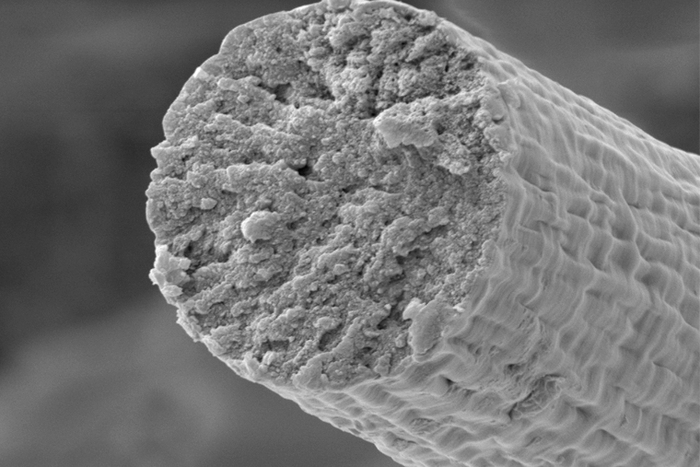Fuzhong Zhang, professor of energy, environmental and chemical engineering at the McKelvey School of Engineering, has developed a synthetic biology platform to produce muscle fibers that are strong, tough and can absorb energy in ways very similar to the real thing. His research team went on to explore genetic changes that may lead to improved material performance.

Credit: Fuzhong Zhang/Wustl
Fuzhong Zhang, professor of energy, environmental and chemical engineering at the McKelvey School of Engineering, has developed a synthetic biology platform to produce muscle fibers that are strong, tough and can absorb energy in ways very similar to the real thing. His research team went on to explore genetic changes that may lead to improved material performance.
Why stop there?
The National Science Foundation (NSF) has awarded Washington University in St. Louis’ Zhang lab a $458,490 grant to continue this line of research. His team can now take a closer look at the muscle protein titin to understand what genetic changes to titin are associated with particular material traits.
“We’d like to use our synthetic biology platform as a tool to understand how synthetic muscle fiber works and make better materials,” Zhang said. His team also will use their tools to examine muscle fibers from long-extinct animals.
Zhang’s lab uses a synthetic biology approach to produce synthetic muscle fibers from genetically engineered bacteria. The group published their tool and properties of the first-generation synthetic muscle fibers last year in the journal Nature Communications. They now plan to use their system to fine-tune titin’s protein sequence, then to understand how those sequence changes affect the properties of muscle fibers.
“We will make fibers with defined protein sequences and examine how strong and how tough they are. We’ll then be able to map the material properties to their sequences,” he said. “We can use that data to create muscle fibers with particular properties by searching for new titin proteins,” he said, which includes those from from long-extinct animal species.




